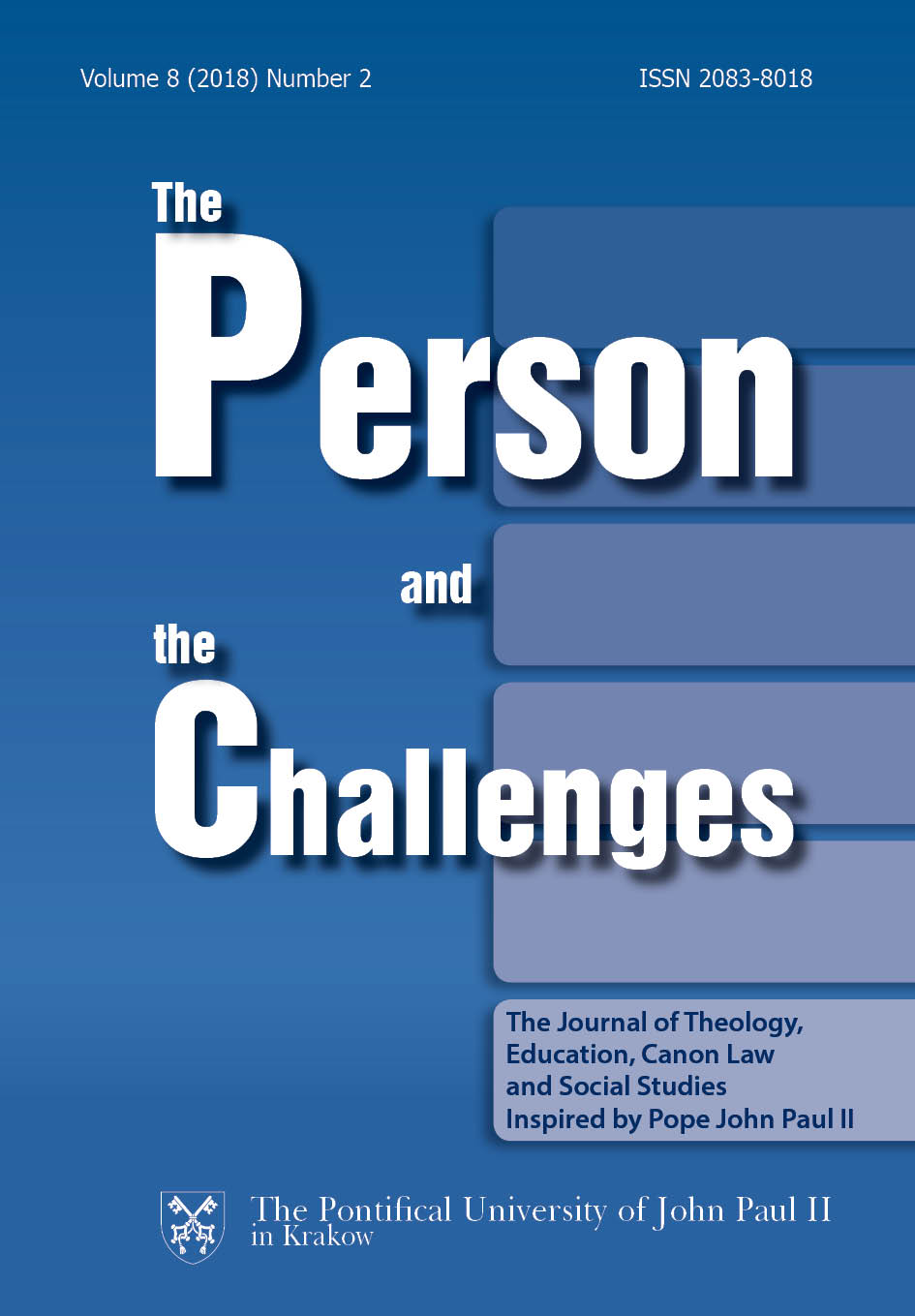Anthropology of the evangelical counsels in the school of St. Benedict of Nursia
DOI:
https://doi.org/10.15633/pch.2571Słowa kluczowe:
St. Benedict, person, freedom, consecration, chastity, poverty, obedience, holinessAbstrakt
Man is someone real and as such he is immersed in a world that is a task set to him as a person. Therefore, the whole world, as entirely coming from God, and entirely assigned to Him, is constantly bursting with its natural truth and good and, consequently, also beauty. This is an important perspective, both in the order of nature and in the order of grace, also because the synthesis and fulfilment of all values (perfections), which is personal fullness – holiness, is the ultimate reference of the human person to the Person of God. However, this perspective becomes comprehensible only in the field of the realism of the human person’s truth, goodness and beauty, related to their perfect Source, and therefore to the Truth, Goodness and Beauty of the Person of God Himself.
In this sense, it can be said that God is the End of all perfections. Holiness itself is thus a specific peak of the elevation of human potentialities to a higher level of being. „Holiness, through the elevation of truth, goodness and beauty to the supernatural level, can fulfil the potential of human nature – reason and will, to their limits; and this fulfilment, in Christian thought, can only take place in visio beatifica, to which this life here and now is supposed to prepare us”. Let us add that the understanding and implementation of evangelical counsels: chastity, poverty and obedience, serve this growth in a particular way. The counsels are the evangelical factor stimulating and strengthening the work of the intellect and free will.
Bibliografia
Dąbek T.M., Święty Benedykt z Nursji, Kraków 2011: WAM.
Krąpiec M.A., Dzieła, vol. IX: Ja – człowiek, Lublin 1991: RW KUL.
Krąpiec M.A., Dzieła, vol. XVI: O rozumienie filozofii, Lublin 1991: RW KUL.
Krąpiec M.A. Dzieła, vol. XV: U podstaw rozumienia kultury, Lublin 1991: RW KUL.
Krąpiec M.A., Dzieła, vol. VII: Metafizyka. Zarys teorii bytu, Lublin 1995: RW KUL.
Krąpiec M.A., Dzieła, vol. II: Realizm ludzkiego poznania, Lublin 1995: RW KUL.
Krąpiec M.A., Dzieła, vol. XX: Psychologia racjonalna, Lublin 1996: RW KUL.
Krąpiec M.A., Dzieła, vol. XVIII: Ludzka wolność i jej granice, Lublin 2000: RW KUL.
Krąpiec M.A., Dzieła, vol. XXII: O rozumienie świata, Lublin 2002: RW KUL.
St. Benedict’s Rule for Monasteries, transl. by L.J. Doyle, Collegeville, Minnesota 1948: The Liturgical Press.
Pobrania
Opublikowane
Numer
Dział
Licencja
Prawa autorskie (c) 2018 Jerzy Tupikowski

Utwór dostępny jest na licencji Creative Commons Uznanie autorstwa 4.0 Międzynarodowe.
Autorzy publikujący w czasopiśmie udzielają jego wydawcy zgody o następującej treści:
- Autor zachowuje autorskie prawa majątkowe do utworu, a jednocześnie udziela wydawcy czasopisma zgody na jego pierwszą publikację w wersji drukowanej i wersji online na licencji Creative Commons Uznanie autorstwa 4.0 Międzynarodowe oraz zgody na wykonywanie opracowań, w tym przekładów.
- Autor ma możliwość udzielania zgody niewyłącznej na opublikowanie utworu w wersji, która ukazała się w czasopiśmie (np. zamieszczenia go w repozytorium instytucjonalnym lub opublikowania w książce), wraz z informacją o jego pierwszej publikacji w czasopiśmie.
- Autor może umieścić swój utwór online (np. w repozytorium instytucjonalnym lub na swojej stronie internetowej) jeszcze przed zgłoszeniem utworu do czasopisma.

